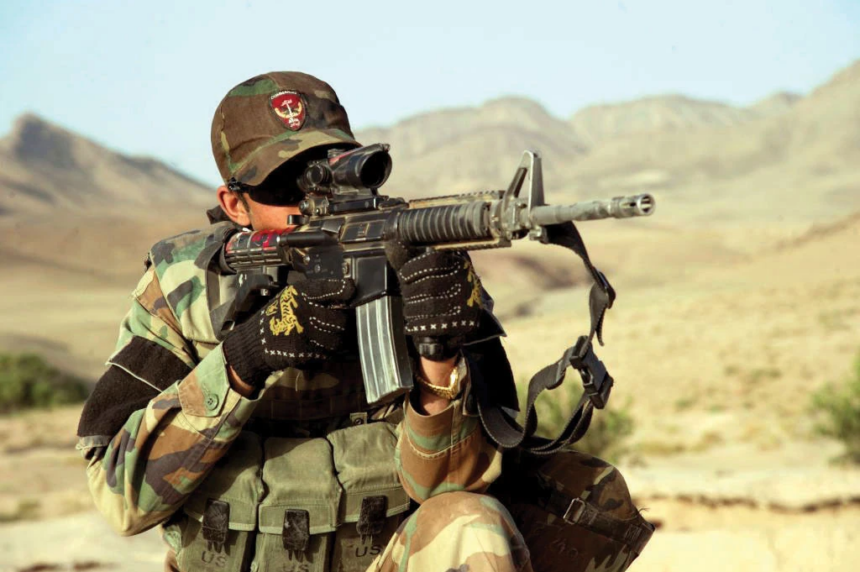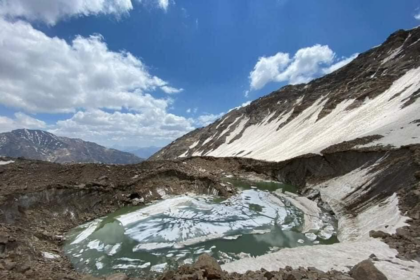RASC News Agency: A growing body of reports from inside Iran reveals the rapidly deteriorating plight of Afghanistani refugees most gravely, former military personnel of the fallen republic who now face systematic neglect, legal erasure, and the looming specter of forced repatriation into Taliban-controlled territory. These men, once tasked with defending the sovereignty of their nation, now navigate life in exile under conditions marked by fear, statelessness, and political betrayal. Arash Nasresfahani, a prominent Iranian researcher, speaking to Shargh Daily, outlined the severe psychological toll the current situation has taken on this embattled community. According to Nasresfahani, the pervasive fear of Taliban retribution has driven many of these ex-soldiers to avoid even basic contact with Afghanistani diplomatic missions in Tehran, fearing their identities may be compromised. The embassy, once a symbol of national continuity, has for many become a site of apprehension.
The case of Mohammad Amir Tavasoli, a former pilot in the Afghanistani Air Force who took his own life on May 17 after being issued a deportation order, has come to symbolize the emotional and existential abyss confronting thousands of former servicemen. His suicide, quietly buried beneath bureaucratic silence, was a chilling testament to a policy architecture devoid of empathy, legal accountability, or humanitarian foresight. This tragedy comes on the heels of the Iranian Ministry of Interior’s controversial decision to invalidate census identification documents for nearly two million Afghanistani migrants documents that had previously functioned as the only legal recognition for refugees living in Iran. According to Nasresfahani, this sweeping move has pushed many into undocumented status overnight, effectively criminalizing their presence and stripping them of access to housing, work, and medical care.
Among those most impacted are former officers and soldiers who once held valid residency permits or refugee documentation. “These men arrived in Iran with papers, with credentials, and with the hope that their sacrifice for a better Afghanistan would not be punished,” said Nasresfahani. “Today, they are being rendered invisible dehumanized by the very states that once received them as victims of war.” The recent announcement of a six-month deadline for undocumented refugees to leave Iran has only intensified the crisis. For thousands of former military personnel, this ultimatum represents not just a legal threat, but an existential one. Analysts warn that returning to Taliban-ruled Afghanistan equates to walking into a death trap. Reports confirm that numerous ex-soldiers have been detained, tortured, and even executed upon crossing the border swiftly identified by Taliban intelligence networks that maintain blacklists of former security and intelligence officials.
“There is substantial documentation indicating that returnees with prior military service are being systematically hunted down,” Nasresfahani confirmed. “The Taliban has compiled detailed records, and individuals suspected of any affiliation with the former republic are being marked for elimination.” Despite these dangers, Iranian authorities have persisted with a security-driven deportation policy, prioritizing bureaucratic purges over human dignity. Human rights advocates have condemned this stance, noting that it violates Iran’s international obligations under the 1951 Refugee Convention, as well as customary norms of non-refoulementva principle that prohibits the return of individuals to territories where they face threats to life or freedom.
Nasresfahani called on the Iranian government to adopt a more humane and responsible approach to the crisis, particularly regarding those who served in official military capacities and now face persecution. “Failure to act with compassion and legality will not only endanger countless lives but will erode the moral standing of the Iranian state on the global stage,” he warned. Meanwhile, international agencies monitoring refugee movements have issued stark warnings about the broader implications of forced returns from Iran and Pakistan. The coordinated deportation of Afghanistani refugees, many of whom are educated professionals or trained soldiers, has triggered a devastating feedback loop: deepening the Taliban’s grip on power while simultaneously dismantling the fabric of civilian resistance.
Where once Iran and Pakistan served as crucial lifelines for Afghanistani asylum seekers, both countries now appear poised to betray that legacy. As border expulsions increase and legal protections evaporate, the region witnesses not merely a refugee crisis, but the orchestrated disintegration of post-republic Afghanistani society a dismantling made possible through regional complicity and international silence. In this grim equation, yesterday’s defenders of freedom are today’s discarded fugitives trapped between a collapsing exile and a homeland where death waits at the border.






